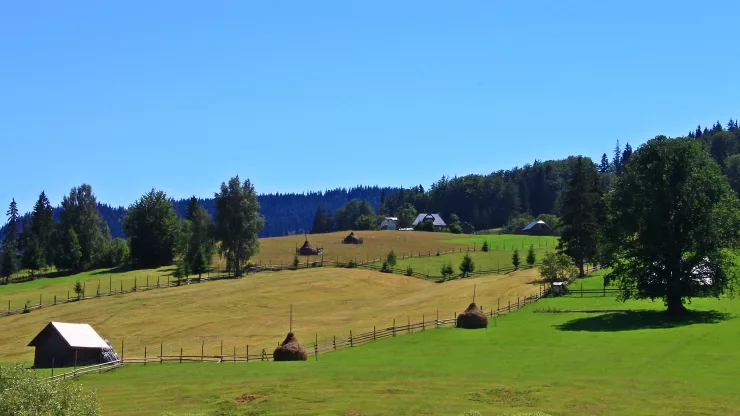The Shift from Urban to Rural Living: Navigating the Transition
In recent years, there has been a growing trend of people choosing to leave the hustle and bustle of urban areas in favor of a quieter, more rural lifestyle.
While this transition can be daunting, it can also be incredibly rewarding.
In this article, we’ll explore the reasons behind this shift, the challenges that come with rural living, and tips for navigating the transition successfully.
Jump to Section
The Urban-Rural Shift: A Growing Trend
According to a 2020 study by the Pew Research Center, nearly a third of Americans have considered moving to a less populated area since the start of the COVID-19 pandemic.
This trend is not limited to the United States – a similar shift is happening in other parts of the world as well.
Here are some reasons behind this trend:
- Desire for a simpler lifestyle: In a world that can feel chaotic and overwhelming, many people are drawn to the slower pace and natural beauty of rural areas.
- Lower cost of living: Rural areas often have lower housing and living costs compared to urban areas, making it an attractive option for those looking to save money.
- Remote work opportunities: With the rise of remote work, many people can now work from anywhere, making it easier to live in rural areas without sacrificing career opportunities.
Why People Are Choosing Rural Living
While the reasons for choosing rural living vary from person to person, there are some common themes that emerge. Here are a few reasons why people are making the shift:
- Better quality of life: With less traffic, noise, and pollution, rural areas can offer a higher quality of life and better overall well-being.
- Strong sense of community: Rural areas often have tight-knit communities where people look out for each other and support one another.
- Connection to nature: Living in a rural area provides easy access to outdoor activities like hiking, fishing, and camping, which can be great for mental and physical health.
Overcoming Challenges of Rural Life
While there are many benefits to rural living, there are also challenges that come with it. Here are a few common challenges and how to overcome them:
- Limited access to services: Rural areas may have limited access to healthcare, grocery stores, and other essential services. It’s important to plan ahead and find ways to access these services when needed.
- Isolation: Living in a rural area can be isolating, especially if you are used to the social connections of urban living. Joining local clubs or organizations can help you meet new people and build a sense of community.
- Distance from family and friends: If you are moving to a rural area far from family and friends, it can be difficult to maintain those relationships. Make an effort to stay connected through phone calls, video chats, and visits when possible.
Finding Community in Rural Areas
One of the biggest draws of rural living is the sense of community that often comes with it. Here are a few ways to find and build community in a rural area:
- Join local clubs or organizations: Whether it’s a book club, a gardening club, or a volunteer organization, joining a group can help you meet like-minded people and build connections.
- Attend local events: Check out community events like farmers markets, festivals, and fairs to meet people and get involved in the community.
- Volunteer: Volunteering for local causes can help you meet people and make a positive impact in your community.
Embracing a Simpler Way of Life
Rural living often comes with a simpler way of life that can be both refreshing and challenging. Here are a few ways to embrace a simpler lifestyle:
- Spend time outdoors: Take advantage of the natural beauty of the area by spending time outside. Go for hikes, bike rides, or simply sit outside and enjoy the scenery.
- Learn new skills: Living in a rural area often requires more self-sufficiency. Consider learning new skills like gardening, canning, or woodworking.
- Unplug: In a world that is constantly connected, taking time to unplug and disconnect can be incredibly refreshing. Consider taking a break from social media or technology for a day or two each week.
Tips for a Smooth Transition to Rural Living
Making the transition from urban to rural living can be challenging, but with a little preparation, it can be a smooth process. Here are a few tips to help you navigate the transition:
- Do your research: Before making the move, research the area thoroughly. Consider factors like housing costs, job opportunities, and access to essential services.
- Visit the area: If possible, visit the area before making the move. This will give you a better sense of what to expect and help you make a more informed decision.
- Start small: If you’re not ready to make a full-time move, consider starting with a vacation home or weekend getaway to ease into rural living.
FAQ
How do I find a job in a rural area?
Finding a job in a rural area can be challenging, but it’s not impossible. Here are a few tips:
- Look for remote work opportunities: With the rise of remote work, many companies are now open to hiring employees who live in rural areas.
- Consider starting your own business: If you have an entrepreneurial spirit, starting your own business in a rural area can be a great way to make a living.
- Network: Attend local events and join local organizations to meet people and build connections that may lead to job opportunities.
What if I miss the conveniences of urban living?
It’s natural to miss the conveniences of urban living when you first make the transition to rural living. Here are a few ways to cope:
- Plan ahead: Make sure you have everything you need before leaving town, whether it’s groceries, supplies, or entertainment.
- Take advantage of online shopping: Many rural areas have limited shopping options, so consider using online shopping to get the items you need.
- Visit the city: If you’re feeling particularly homesick, plan a trip to the city to get your fix of urban living.

With a deep passion for personal development, Ben has dedicated his career to inspiring and guiding others on their journey towards self-improvement.
His love for learning and sharing knowledge about personal growth strategies, mindfulness, and goal-setting principles has led him to create My Virtual Life Coach.
Contact Ben at [email protected] for assistance.




